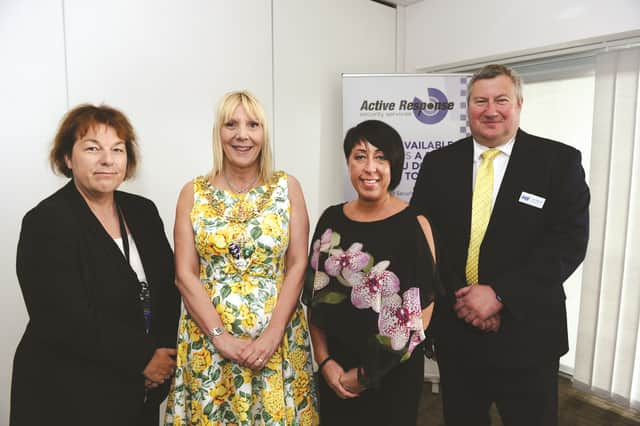One in 20 people hit by identity theft


A summit led by security specialists at the New York Stadium was told that 200,000 cyber attacks or attempts had been made around the world by 8.30am on the day of the event.
One in 20 people worldwide had fallen victim to identity theft and the majority of crimes are now committed online, it was revealed.
Advertisement
Hide AdAdvertisement
Hide AdFormer Chief Constable Stuart Hyde told an audience including the Mayor of Rotherham, Cllr Eve Rose Keenan, that the increasing number of “smart” home products available gave hackers and thieves more chances to strike.
Mr Hyde, who now works with the Cyber Security Information Sharing Partnership (CiSP), said household objects such as toasters, fridges and even clothes pegs and mattresses could be linked to the internet.
He said: “There is practically nothing in our home that cannot connect and each of these needs to be secure.
“All the criminals need to do is find a breach in that long chain of connections and they are in.”
Advertisement
Hide AdAdvertisement
Hide AdDet Chief Insp Vanessa Smith, of the South Yorkshire and Humber Cyber Crime Unit (CiSP), said cyber crime cost the UK economy £34 billion last year, although she admitted the figure could be much higher.
With criminals acting more like businesses these days, online crimes now outnumbered all offences, she said.
“The intention of cyber criminals is to remain unseen,” said Ms Smith.
“There are no fingerprints left at the scene.
“They are criminals with a business mind. They know your data is being shared all the time online.”
Advertisement
Hide AdAdvertisement
Hide AdMichelle Bailey, managing director of Active Response Security, said more business people needed to be aware of the scale of the threat and criminals were always testing businesses’ online security.
Online crimes were not just financial, the summit was told, as victims could also be harassed, groomed and threatened online by criminals.
Ms Smith said that cyber crimes could include hacking, fraudulent emails, blackmail, as well as creating child abuse images and sending hate mail.
She said while most were criminals looking for money, others might be sexual offenders, hackers who cause problems just for fun, or activists making a political point.
Advertisement
Hide AdAdvertisement
Hide AdMs Smith said that cyber crime for financial gain could take the form of trying to get victims to hand over information such as bank account numbers and passwords to, as recently seen in the NHS, holding data for ransom.
She said: “People and businesses are only as strong as their weakest link.
“If you are a public figure be warned, people will go for your information online.
“Just be wary of what you are doing.”
The conference in Rotherham was just two weeks after dozens of NHS trusts were targeted by a ransomware virus which paralysed patient records and IT systems.
Advertisement
Hide AdAdvertisement
Hide AdCareful monitoring of computer systems and keeping systems updated with new anti-cyber crime patches is vital, the police insist, as is training all staff to be aware of risks.
Mr Hyde revealed that of the 7.8 billion people in the world, 348 million have had their identities stolen by cyber criminals - almost nearly five per cent of the world’s population.
But he pointed out that free help and advice were available from the likes of Europol, which provide free updates on threats, CEOP, which deals with concerns over child protection, reporting network ActionFraud and his own organisation, the CiSP.